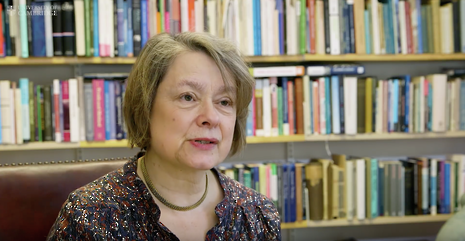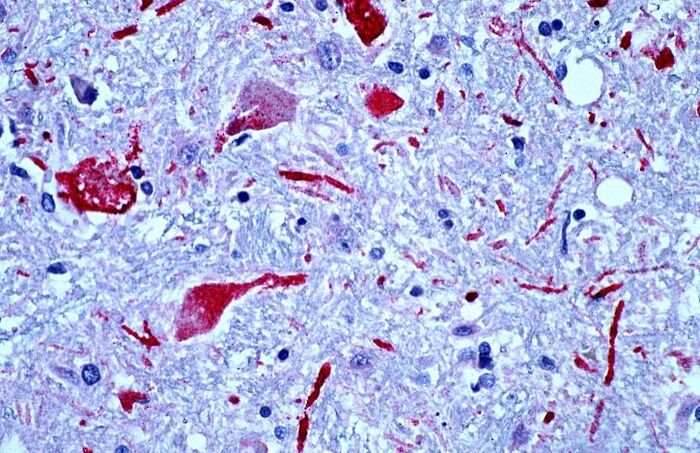The gulf between giants: philosophy and science
The vast divide between science and philosophy is limiting the potential to answer the Big Questions

“There are two polar groups: at one pole we have the literary intellectuals, at the other scientists, and as the most representative, the physical scientists. Between the two a gulf of mutual incomprehension.” When CP Snow delivered his enduring lecture The Two Cultures at Cambridge’s Senate House in 1959, he was one of few people in the modern era to have achieved eminence in both science and the humanities. Alongside his pioneering work as a physical chemist while a fellow of Christ’s, he wrote the influential series of novels Strangers and Brothers, which among much else examined the absurdity of academic collaboration and the interplay between scientists and politicians. Outside of his novels, perhaps his most enduring contribution was his idea of ‘the two cultures’ – science on one side, humanities on the other, and little between to connect them.
“You need to talk to both theologians and physicists. They may not be used to talking to one another, but that’s all the more reason to bring them together in conversation.”
He thought fondly of Piero della Francesca, of Pascal, of Goethe – paragons who straddled both sides of this academic division, whom he thought understood the totality of their world more than anyone could in his day. Specialisation, however, seemed to have crippled his era: he saw that scientists were absurdly ignorant of the humanities, while the literati knew not even a schoolboy’s science. Perhaps it was by then impossible to be familiar with every human endeavour, but the gulf was running deeper: ignorance was dissolving to acrimony. Each side thought the work of the other arcane and unessential. This once-holy matrimony of the academic tradition was headed for irretrievable breakdown. There was almost no integration between these two groups, and, as he saw it, this was actively limiting the scope of research in both fields.
Six decades on, not much has changed. It is this persistent divide that the recently-concluded Templeton World Charity Foundation Project sought to bridge. In the scheme, organised by Professor Sarah Coakley of Cambridge’s Faculty of Divinity, three theologians and philosophers were placed in scientific research laboratories around Cambridge, one each in the departments of Psychology, Applied Mathematics, and Zoology. The outcomes of the initiative have been detailed in a short film by the University. They were given formal scientific training in the subjects relevant to their new field before embarking as active participants on cutting-edge research. The project certainly seems to have been a positive experience for the academics who took part in it; indeed, the collaboration has raised a number of interesting questions for each of Snow’s two cultures.
Both arrive from different directions at a familiar crossroads, exchange a few words on consciousness or morality or God, and head off – both richer for the encounter, both still independent.
For example, Dr Natalja Deng, who studied Natural Sciences at undergraduate level before moving to philosophy, spent three years working closely with cosmologists in the Department of Applied Mathematics and Theoretical Physics. When asked about the purposes of the project, she said,“What does it mean to ask if God exists? And what does it mean to say that the universe had a beginning? If you ask yourself questions like this, you are doing philosophy. In order to do that, you need to talk to both theologians and physicists. They may not be used to talking to one another, but that’s all the more reason to bring them together in conversation.”
Indeed, the two fields have many natural affinities. The philosopher Karl Popper defined science as intellectual discourse which was ‘falsifiable’ – essentially, he argued that scientific statements can be proved be proved to be wrong. Philosophy, on the other hand, is not so easily demarcated. Similarly dealing in abstraction, it presses beyond these boundaries, knowing that it deals with the unknowable. Philosophy, in some aspects, poses itself both as a foundation and a continuation of the scientific process: from one side it inspects assumed bases of reality, and from another draws ethical issues from provable fact, all with a certain abstraction, a generality.
The sciences and philosophy, then, share a rare property within academia: a credible pretence towards a universal truth. Of course, they are not at all the same: they use quite different means of enquiry and they approach experiments very differently. Indeed, much of the time they aspire towards wholly different types of knowledge. In practice, these two great characters of human thought touch in only a few places, and only fleetingly. Both arrive from different directions at a familiar crossroads, exchange a few words on consciousness or morality or God, and head off – both richer for the encounter, both still independent.
To quote Snow once again, “there is no excuse for letting another generation be as vastly ignorant, or as devoid of understanding and sympathy, as we are ourselves”. Specialism is laudable, and yet it should always be tempered by a little variety, so as one might take a step back and see one’s studies as part of a bigger picture. By such shifted perspectives a fresh light is often shed upon a problem – some germ of a new theory, some pressing ethical concern – which will eventually prove useful, even indispensable. This project, while small in scale, is an important step on the road to truly integrated research of this kind. We are not there yet – far from it – but now, we have at least set out upon the long journey, back towards a shared understanding.
 News / Police to stop searching for stolen Fitzwilliam jade17 April 2024
News / Police to stop searching for stolen Fitzwilliam jade17 April 2024 News / Copycat don caught again19 April 2024
News / Copycat don caught again19 April 2024 Interviews / ‘It fills you with a sense of awe’: the year abroad experience17 April 2024
Interviews / ‘It fills you with a sense of awe’: the year abroad experience17 April 2024 News / Night Climbers call for Cambridge to cut ties with Israel in new stunt15 April 2024
News / Night Climbers call for Cambridge to cut ties with Israel in new stunt15 April 2024 News / Acting vice-chancellor paid £234,000 for nine month stint19 April 2024
News / Acting vice-chancellor paid £234,000 for nine month stint19 April 2024





